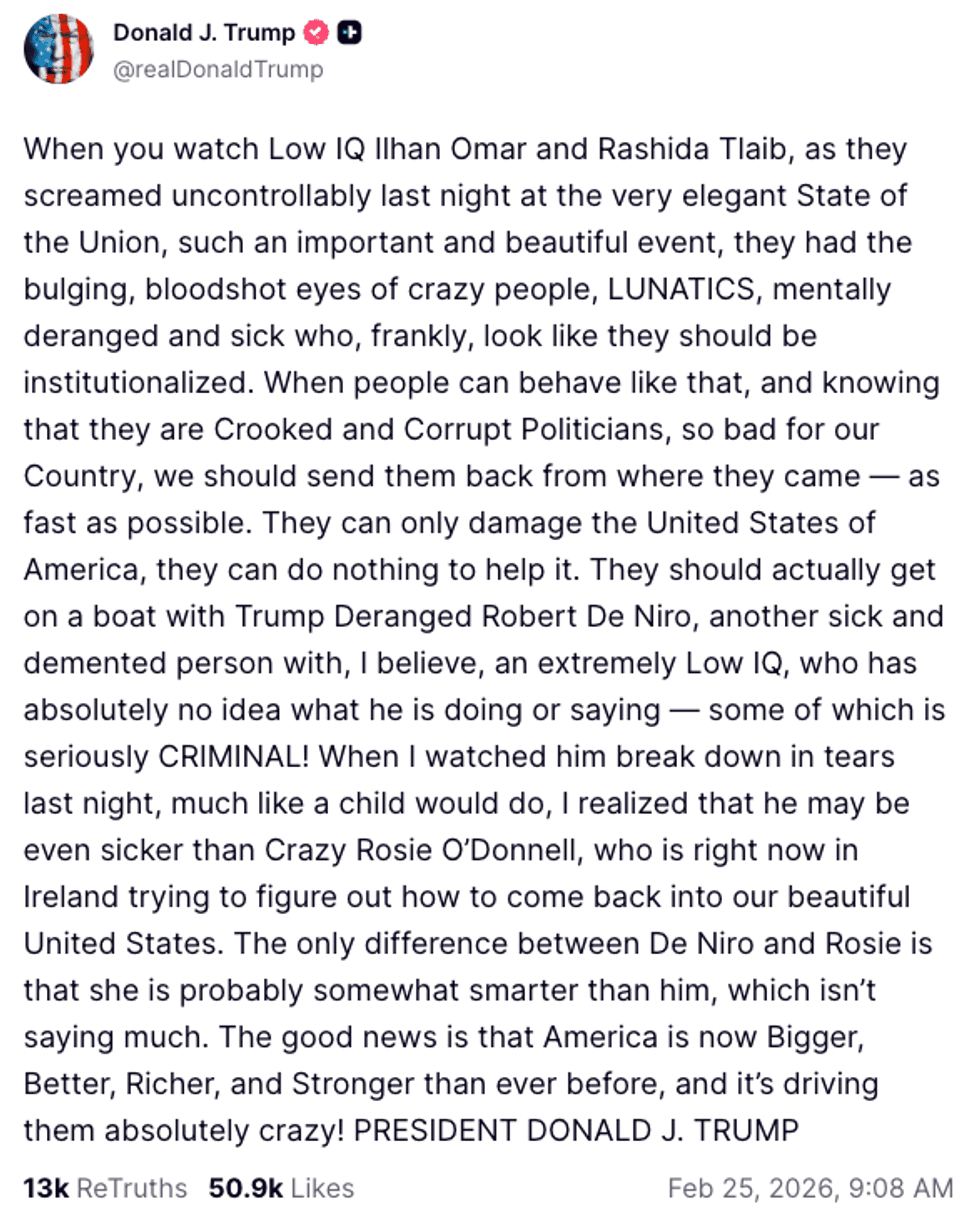Congresswoman Liz Cheney (R-WY) is in danger of losing her position as House Republican Conference Chair once again after refuting former President Donald Trump's lie that the 2020 election was "stolen" from him by Democrats through widespread election fraud.
Cheney faced similar backlash in January when she attributed the siege of the United States Capitol to Trump's election lies and voted to impeach him for inciting the insurrection.
These election conspiracy theories have been embraced by most Republican lawmakers despite their absurdity and the underlying message that the outcomes of United States elections can no longer be trusted if Republicans don't like the results.
With Cheney's downfall growing more and more imminent, Congresswoman Elise Stefanik (R-NY) is the favorite to replace her as conference chair.
Stefanik saw a massive popularity boost among Republicans as one of Trump's most vocal defenders during his first impeachment, and the former President endorsed her to replace Cheney earlier this week.
With the spotlight on Stefanik, her willingness to support fantasies of election fraud is under heavy scrutiny, and one absurd claim is now resurfacing.
The state of Georgia, which went blue in a presidential election last year for the first time since 1992, was a major target of the Republican party's voter fraud lies. Stefanik falsely claimed in a January statement that one out of every four ballots in Fulton County, Georgia was illegitimate.
With the claim resurfacing, CNN fact checker Daniel Dale asked Georgia Secretary of State Brad Raffensperger to comment on Stefanik's claim.
A spokesman for Raffensperger called the statement "ludicrous" and noted that there were no underage voters in Georgia and, statewide, there were only two votes found to be from dead voters.
Raffensperger knows the toll of Trump's election lies more than most. After both Senator Lindsey Graham (R-SC) and Trump himself pressured Raffensperger to "find" or throw out the votes necessary for Trump to win, the former President routinely berated Raffensperger on Twitter and prompted death threats against him.
People largely agreed with the assessment of the Secretary's office regarding Stefanik's claims.
But many said the blatant lies in Stefanik's January statement are a feature—not a bug—of the current Republican party; one that intersects perfectly with Stefanik's own ambition.
Stefanik has yet to retract the claim, nor is she expected to any time soon.














 @ritawilson/Instagram
@ritawilson/Instagram @bettyjo46/Instagram
@bettyjo46/Instagram @dottdott65/Instagram
@dottdott65/Instagram @betseyboop/Instagram
@betseyboop/Instagram @ondinefortune/Instagram
@ondinefortune/Instagram @heathermessina/Instagram
@heathermessina/Instagram @mlejordan/Instagram
@mlejordan/Instagram @icu2qtpie/Instagram
@icu2qtpie/Instagram @ryan.mannino013/Instagram
@ryan.mannino013/Instagram @helen_nk0730/Instagram
@helen_nk0730/Instagram @steph.lynn_26/Instagram
@steph.lynn_26/Instagram @themovieposterguy/Instagram
@themovieposterguy/Instagram

 @lancebass/Instagram
@lancebass/Instagram @aj_mclean/Instagram
@aj_mclean/Instagram @ditavonteese/Instagram
@ditavonteese/Instagram @tmobilearena/Instagram
@tmobilearena/Instagram @clearlycanadian/Instagram
@clearlycanadian/Instagram @sprouts/Instagram
@sprouts/Instagram @cityoflasvegas/Instagram
@cityoflasvegas/Instagram
 @realDonaldTrump/Truth Social
@realDonaldTrump/Truth Social